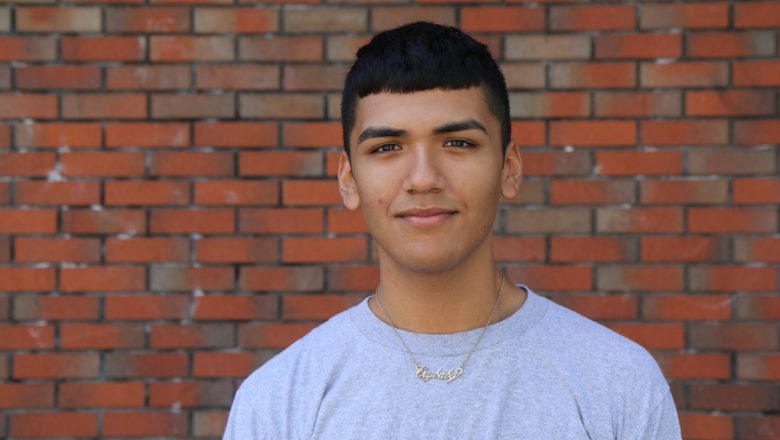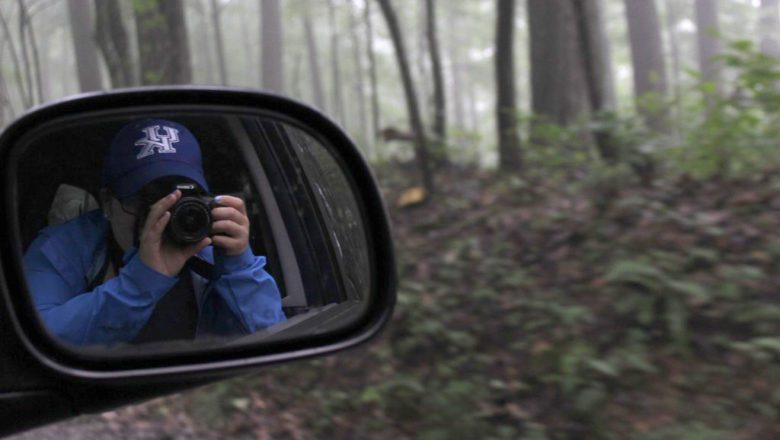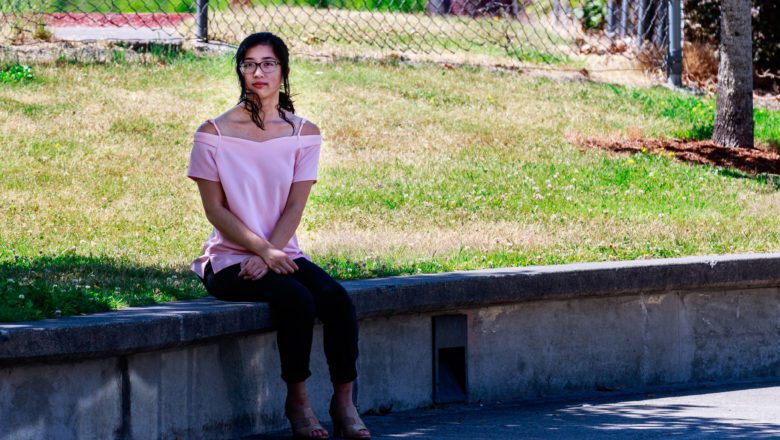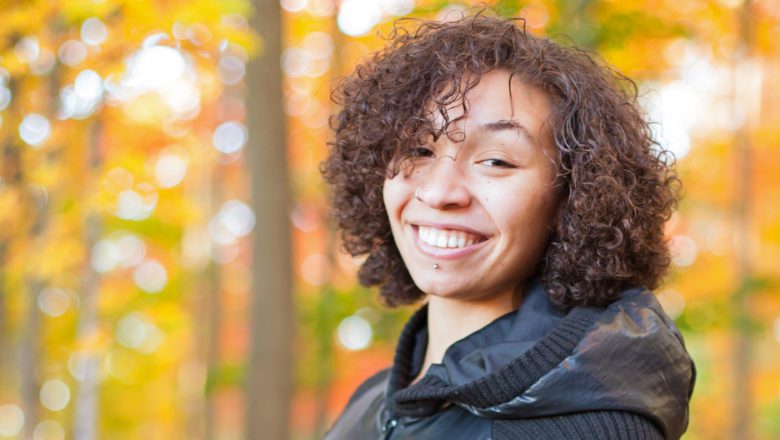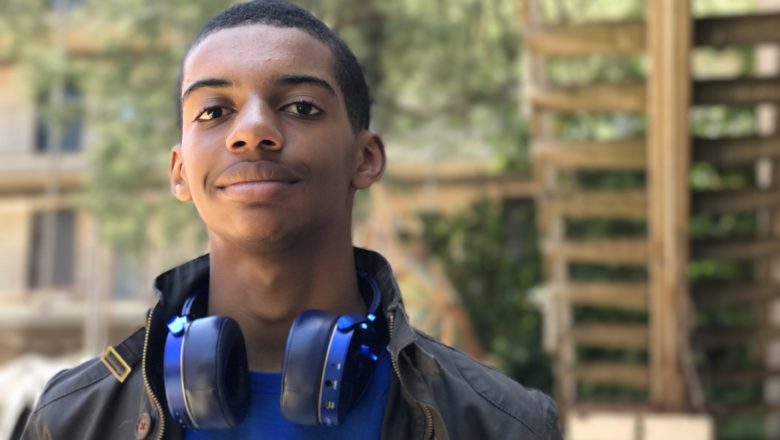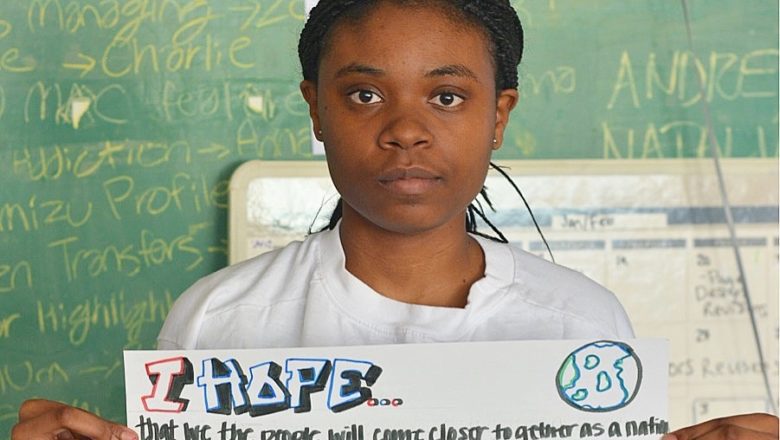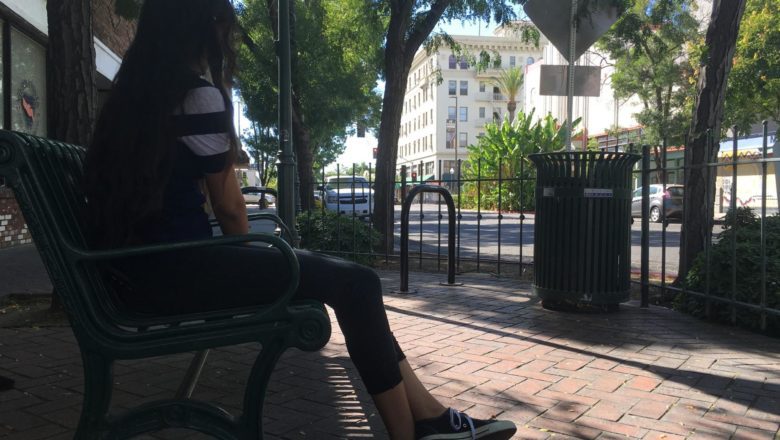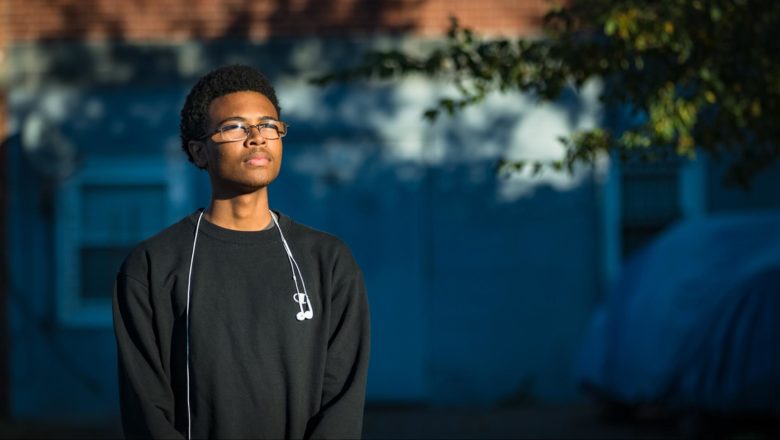Lauren Rose, 19 (White) – McRoberts, KY
Shaved ice stand employee, intern at media non-profit
In my hometown, McRoberts, Kentucky, there aren’t a lot of options for summer jobs. In fact, there aren’t a lot of businesses, period. Most people drive 30 minutes away just to get their groceries. I live in the remnants of an old Appalachian coal town, which is predominantly white. Since many residents have moved to seek better economic opportunities elsewhere, the area feels isolated.
It’s pretty typical for kids here to work. I started at a shaved-ice stand when I turned 15, so I could begin saving up for a car and clothes and normal teenage stuff. Now at 19, I’m still at the same job and I usually have a second one. I do this because I want to have the freedom not to rely on my parents. There are a handful of young people around here who are better off. Maybe their parents can afford to give them $20 once in awhile — but most people are in the same boat, working hard and living comfortably enough.
Right now my second job is a paid internship at a youth media organization in Whitesburg, Kentucky. I’m making a film about my community and black lung, a disease that affects miners. This is the first time I’ve ever had a job where I’ve been paid to be creative.
My job at the shaved-ice stand has nothing to do with creativity. On a typical day, I make more than 300 shaved ice cones. There’s a machine we use to break down the ice. We adjust the blades and it transforms the ice block into a big pile of snow. I’m a perfectionist about the final product, and I’m often assigned to train new employees. But the truth is, after four years I hate working here. I just don’t have that many other options. Between my two jobs, I work seven days a week. It’s very draining. I’ve been sick a lot this summer, and I think it’s because I’m stressed all the time.
It’s not just teenagers like me who have to work jobs like this to make ends meet. Since the mine layoffs, a lot of people are having to switch careers and take on service or retail jobs to help their families. I worked with a single mom at the shaved-ice stand. She was there up to six days a week, just to provide for her daughter. The pay wasn’t much, hardly anything in comparison to her ex-husband’s old mining job. I thought her hard work was admirable. It wore her down, but it meant her daughter had everything she needed.
Thinking about a future here, everyone my age is faced with the same predicament: should we stay or should we go? I want to contribute to this place. This is where my family is from. It’s where I have my network. I love how even if you don’t know someone here, you still smile at them on the street. In big cities, it’s like they have no sense of community at all. But the reality is that jobs are hard to come by in Appalachia, and chances are slim that I can stay here and be successful at the same time.
Lauren Rose is a part of The Appalachian Media Institute in Whitesburg, Kentucky and a correspondent for Youth Radio. Additional production support by Willa Johnson.
Lauren’s essay appeared as part of a Youth Radio collaboration with the New York Times’ Race/Related.
Headed Back To School, Teens Reflect On Summer Jobs
Four teens reflect on how race and class played a role in their summer employment. Read our latest for The New York Times’ Race/Related newsletter.
Confronting Class Across The Fast Food Counter
It’s always awkward when kids I know come in as customers. The underlying context is clear: Instead of being out having a good time on a Saturday night, I’m at work, serving them.
Small Towns Can’t Afford to Stay Divided in Politics
But the more I hear talk about “rural” communities like ours, the less I feel like the rest of the country understands us at all. People seem to think we’re living in the past.
In The Mountains Of Kentucky: Life Measured In Quality, Not Quantity
We have statistics challenging us to leave our area and find a better one, but as the saying goes: there’s no place like home.
Race/Related: Before I Came To The U.S., I Didn’t Understand What “Racism” Meant
Back in El Salvador, I didn’t really know what “racism” was. After being in the U.S. for a while, I learned the meaning and impact of that word.
Race/Related: Even In My Liberal State, People Consider Me The “Other”
The first time someone directed a racial slur towards me… it took me a few moments to process what I had just heard. I was taken aback, but not exactly surprised. After all, there I was, a Filipina reporter covering a Pro-Trump rally.
Race/Related: My First Time Being Called The N-Word, I Was In Elementary School
It was the first time I had ever heard that word. I didn’t know how to react. I had many questions. Should I be upset? Could I call the white student the n-word too? Who invented this word? Do adults use the word?
Race/Related: My Mom Knew I’d Get Stopped By The Police, So She Made Me Practice
Having to spend my childhood rehearsing for the day a police officer would pull me over may sound scary. And I’m aware it’s not something parents of all races feel the need to teach their kids. But the day it actually happened, I was grateful that my mom made sure I was ready.
Hopes For the Trump Era: What Teens Want
On the eve of Donald Trump’s first address to a Joint Session of Congress, the nation sits in anticipation to hear his agenda for his administration. But how will his plans affect the lives of youth across the country?
What It’s Like To Be A Teen Farmworker
I like the sounds of the fields, hearing people speaking Spanish and the radio blasting ranchera tunes. It sounds like my childhood.
Interning While Black: Battling Imposter Syndrome
I’ve been interning at a tech company that makes mobile apps. Being young, black and Muslim, it’s a little intimidating working in a place without many people of color.

